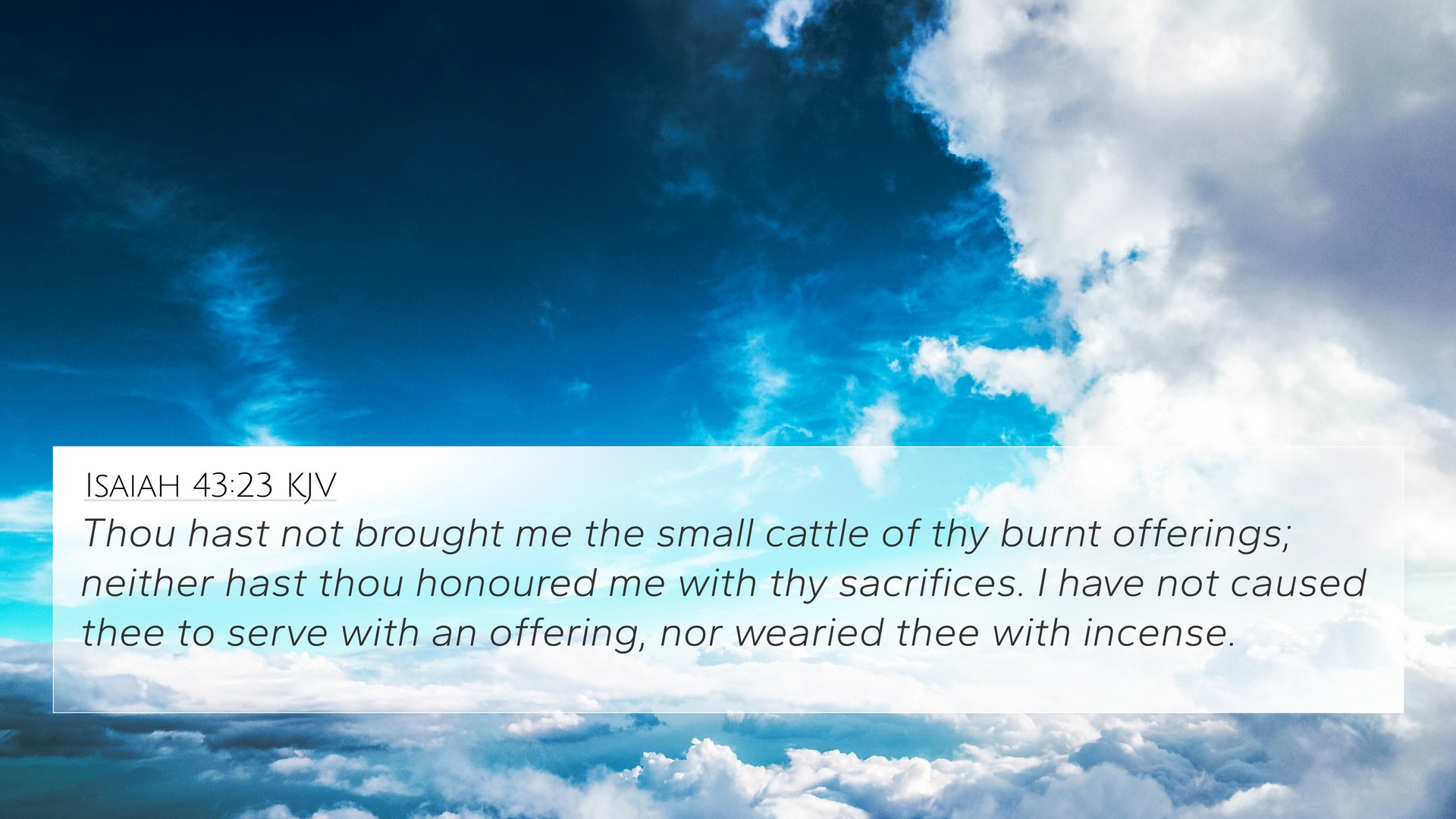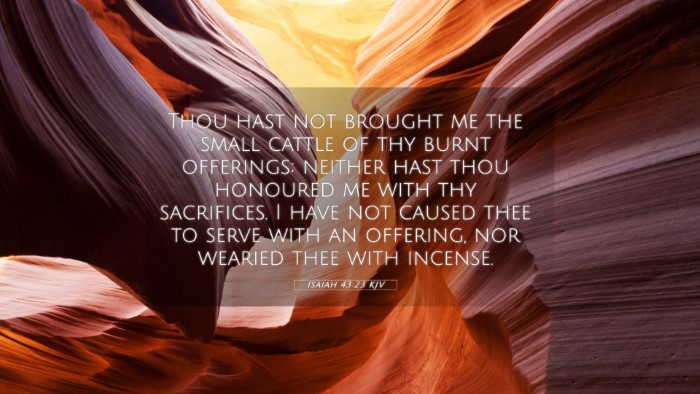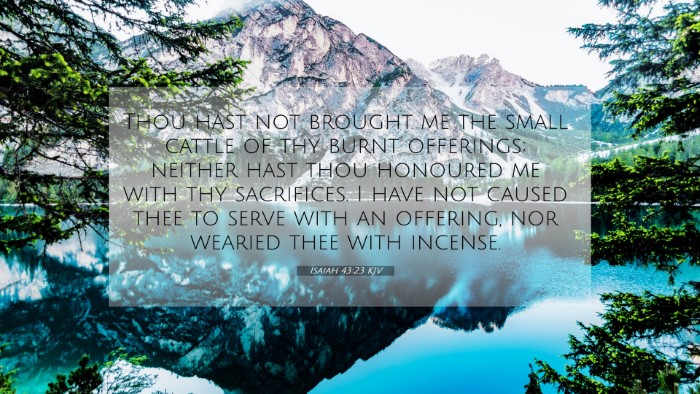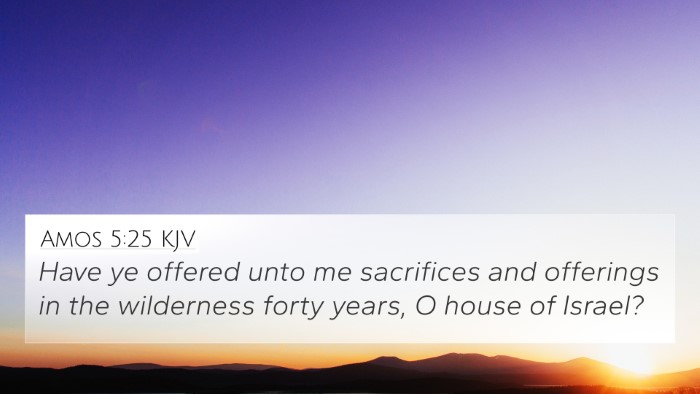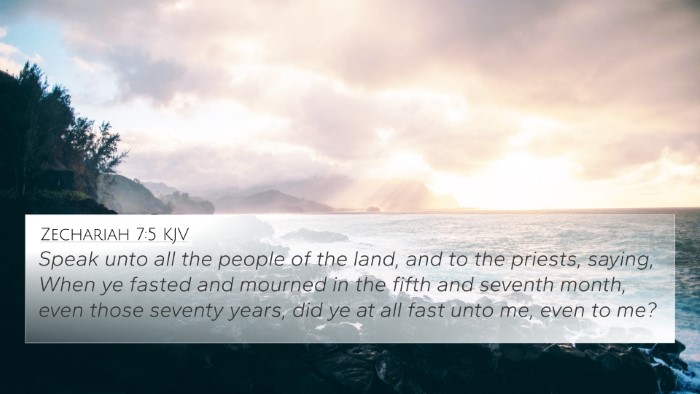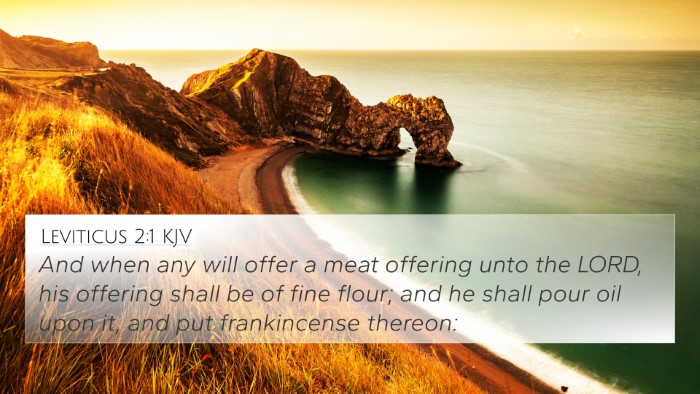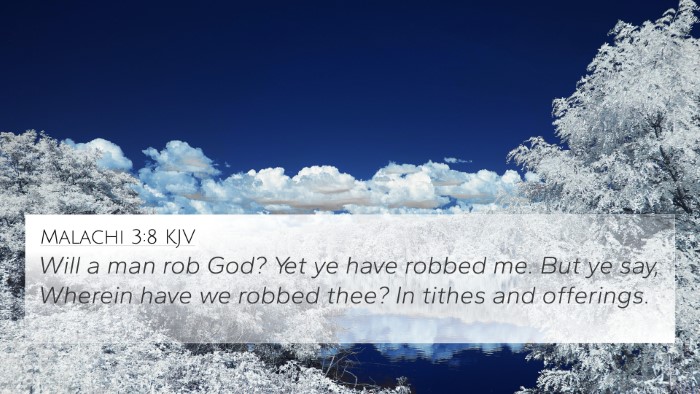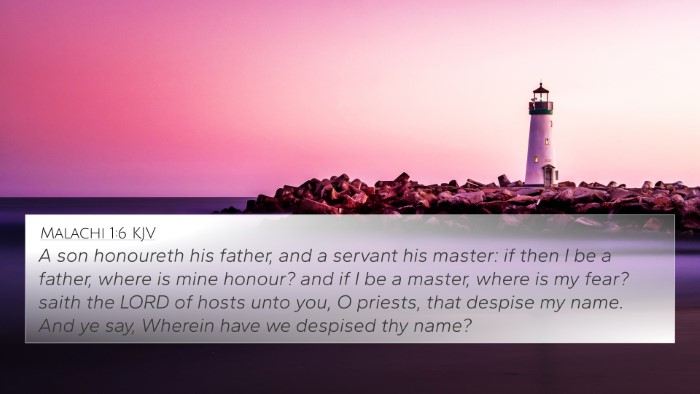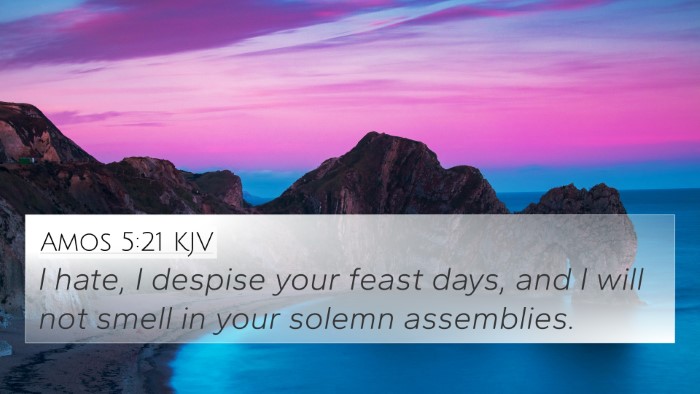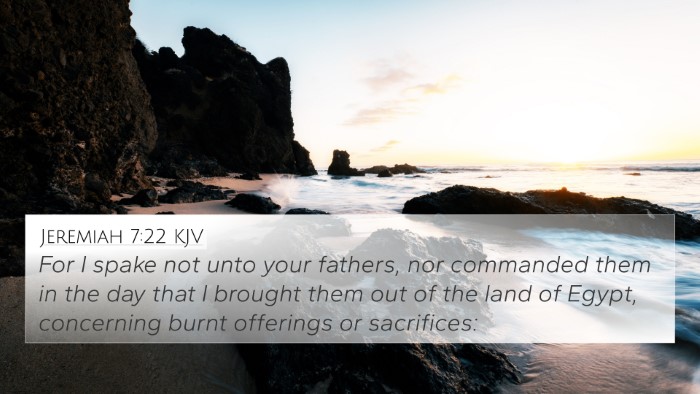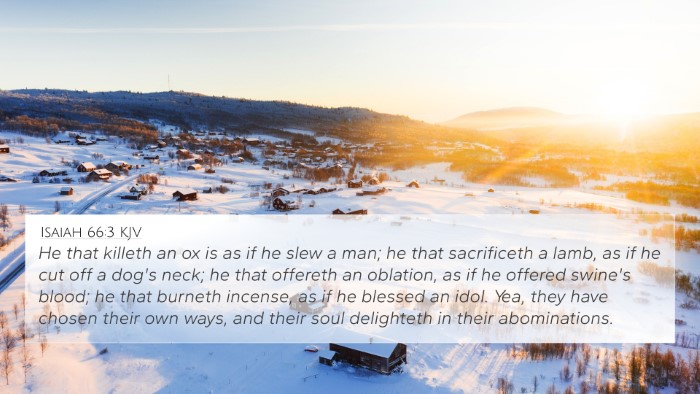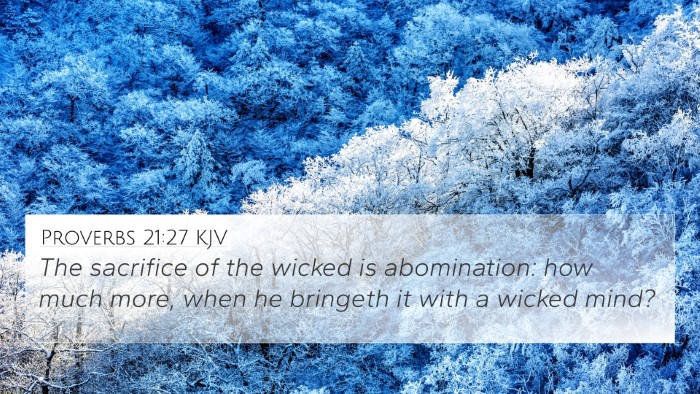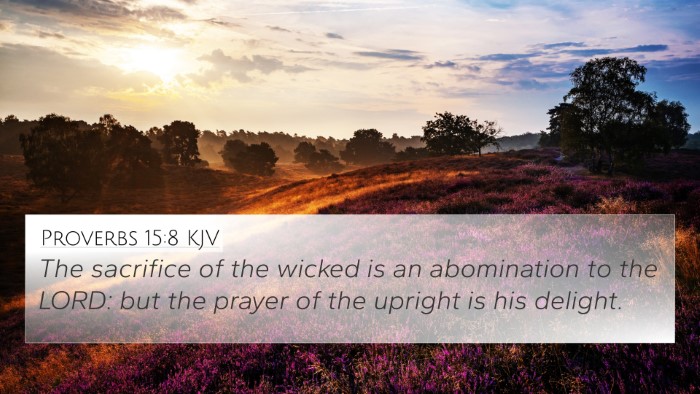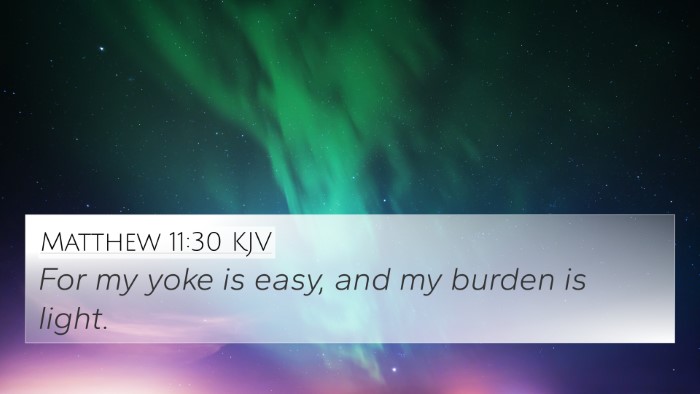Understanding Isaiah 43:23
Isaiah 43:23 reads, “You have not brought me your sheep for burnt offerings, nor honored me with your sacrifices. I have not burdened you with offerings, nor wearied you with incense.” This verse addresses the intimate relationship between God and His people, emphasizing their neglect in worship.
Summary of Meaning
The prophet Isaiah, speaking on behalf of God, expresses a grievance about the people’s failure to bring their offerings and sacrifices. This reflects not just the ritualistic aspects of worship but a deeper disconnect in their relationship with God. The implication here is that God desires heartfelt worship rather than mere ritual.
Commentary Insights
-
Matthew Henry:
Henry emphasizes that God does not seek mere external compliance to law, but rather a genuine connection. He criticizes the people for their lack of devotion and affection towards their Creator, highlighting the difference between mere ritual and true worship.
-
Albert Barnes:
Barnes elaborates on the significance of sacrifices in the Old Testament, noting that although these rites were instituted by God, they should not be executed without sincerity and a genuine spirit of reverence towards Him. He calls attention to Israel's neglect and the spiritual consequences of such actions.
-
Adam Clarke:
Clarke discusses the context in which Isaiah speaks, emphasizing that God had provided means for atonement and worship but the people failed to comply with the inherent intention of these laws, which was to draw their hearts closer to God.
Related Bible Cross-References
This verse connects deeply with various other scriptures that highlight the themes of worship, sacrifice, and spiritual relationship with God. Some relevant cross-references include:
- Exodus 20:24 - “An altar of earth you shall make for me...” (Discussions of offerings)
- Micah 6:6-8 - "With what shall I come before the Lord...” (Emphasis on justice and walking humbly)
- Psalms 50:8-11 - "I do not rebuke you for your sacrifices...” (Indicating God’s desire for sincerity over ritual)
- Hebrews 10:5-6 - “Sacrifices and offerings you did not desire...” (A New Testament reflection on sacrifice)
- Isaiah 1:11-13 - "To what purpose is the multitude of your sacrifices to me...” (Condemnation of empty rituals)
- 1 Samuel 15:22 - "Does the Lord delight in burnt offerings and sacrifices as much as in obeying the Lord?” (Obedience valued over sacrifices)
- James 1:27 - “Religion that God our Father accepts as pure and faultless is this...” (Pure religion valued over mere offerings)
Thematic Connections and Inter-Biblical Dialogues
The themes in Isaiah 43:23 resonate with the understanding that God desires authenticity in worship. This verse highlights a rich dialogue with:
- The sacrificial system – The underlying intention behind sacrificial laws, which is true devotion.
- Prophetic calls for justice – Many prophets decried merely ritualistic sacrifices without justice or mercy.
- The New Testament – The translation of sacrificial themes into the person of Christ.
- Worship practices – The evolution of worship from Old to New Testament practices.
Practical Applications for Reflection
When studying Isaiah 43:23, consider the following:
- How do our modern worship practices reflect the heart of what God desired in the sacrifices of ancient Israel?
- Are there rituals in your life or worship that have become mere formalities rather than expressions of your heart?
- Engage in self-reflection: How can one ensure that one’s worship is heartfelt and sincere?
